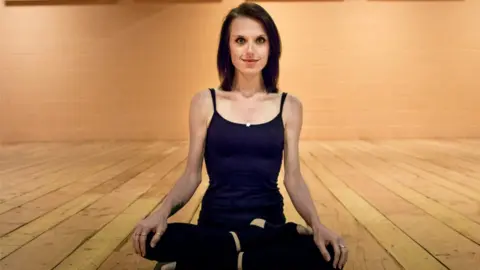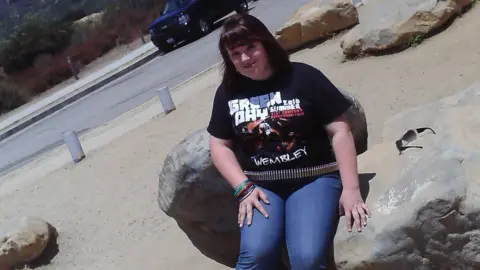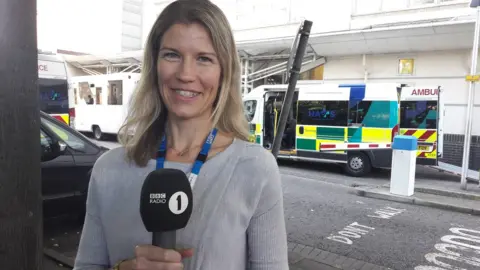'I don't know how to live without my eating disorder'
 EPA
EPAIt's been almost exactly a year since 23-year-old Laura hit the lowest point in her battle with anorexia.
But despite being in a better place, total recovery is still a scary thought.
She says it's not about weight, or vanity - it's all about having ultimate control over herself.
Despite making steps on that difficult journey, it keeps coming back to one thing playing on her mind.
"If I don't hate a part of myself, what am I doing with my time?
"I don't know how to live without it."
It didn't start that way though. When Laura was 16 she was overweight and decided to do something about it.
She began monitoring her calorie intake and exercising regularly, then things spiralled and it developed into an addiction.
"It just sort of snuck up on me - it's not like one day I woke up and thought, 'I'm an anorexic.'"
Laura's lowest point came on 20 November 2016.
"I was told if I lost half a pound more, I'd be in hospital.
"It got to the point where everybody was so desperate to make me eat.
"My mum made me some steamed vegetables and I burst into tears because I physically couldn't bear the calories of steamed broccoli.
"It was the first time that I went to sleep and I was hoping that I wouldn't wake up.
"It was either recovery or I die."
 Laura
LauraEver since then, Laura has been on the difficult road to recovery and she's been sending us video diaries of her progress throughout the year for Newsbeat's iPlayer documentary My Mind and Me.
And while total recovery is her ultimate aim, she admits that it's a daunting prospect.
"That image of a recovered life is so scary. Who am I if I'm not struggling from an eating disorder?"
Laura has tried to overcome these feelings by setting herself monthly challenges, including learning a martial art and having a massage at a spa for the first time.
Dr Philippa Buckley, from the Vincent Square Community eating disorder service in London, says what Laura is feeling is not unusual.
"Eating disorders narrow people's lives, they lose touch with friends, activities, hobbies - so it's important to re-establish life.
"That's one of the things that is important for recovery.
"You have to have something to recover for."

Dr Philippa says signs of those with an eating disorder can include weight loss, being secretive about when and where they eat, isolating themselves from social situations and being quite irritable when asked about food and eating.
"You should directly address the subject in a calm and caring way rather than thinking it'll just go away if I ignore it.
"There are so many positives to recovery though.
"Your skin will glow, your nails will grow, your hair will grow.
"And of course simple things like being able to sit down in comfort once you have a bit of padding."
If you're struggling with your mental health or an eating disorder you can find help at BBC Advice.
Find us on Instagram at BBCNewsbeat and follow us on Snapchat, search for bbc_newsbeat
